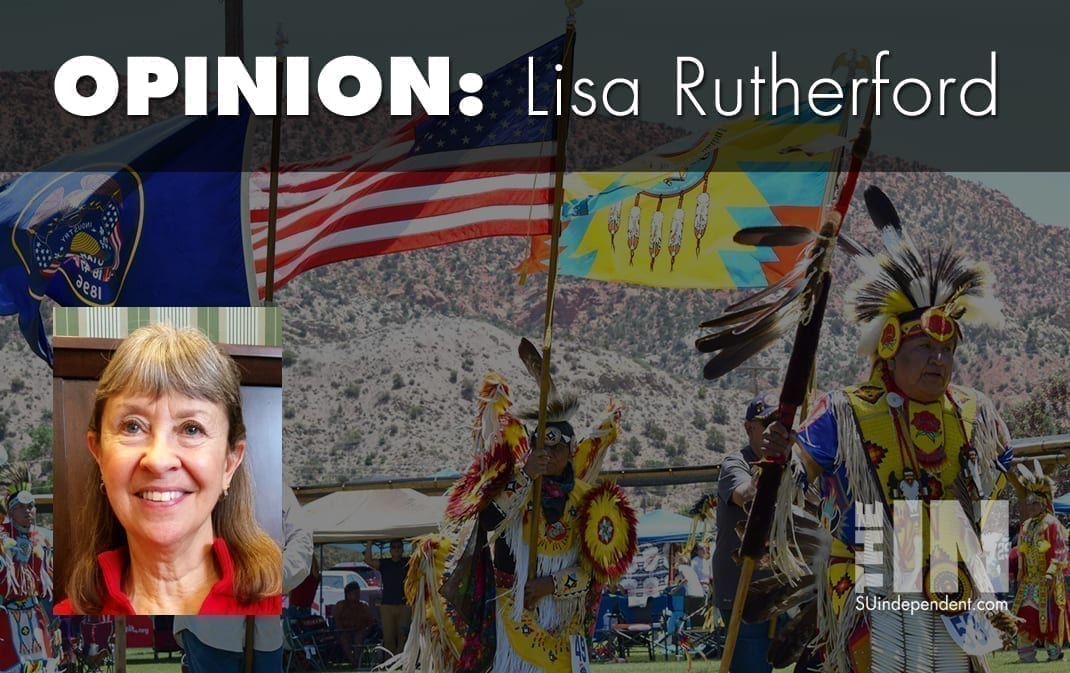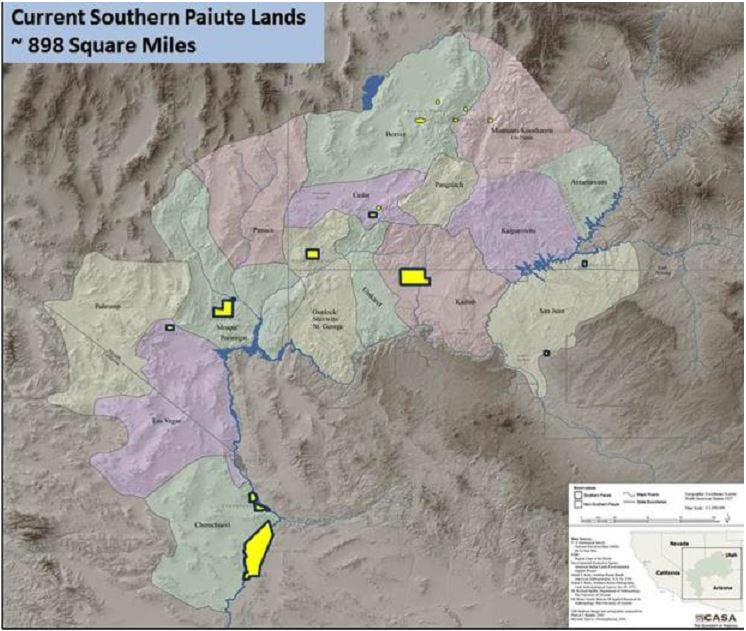
The Lake Powell Pipeline and Environmental Justice for Kaibab Tribe
By Lisa Rutherford
Tracking the proposed Lake Powell Pipeline (LPP) for fourteen years has given me the opportunity to learn a lot about water and this project specifically. But a new light was shed on the issue when I read the draft Environmental Impact Statement (DEIS), currently out for public comment until September 8, and gained insight about what this project means to our Native American neighbors whose ancestors lived in this area long before any Europeans set foot here and foisted their development mentality on the land ethos of the Indigenous people. I was aware of the Kaibab Band of Paiute’s position on the LPP prior to this but was not that aware of the why.
The DEIS states:
“The proposed LPP Area of Potential Effect (APE) crosses the Holy Land of the Southern Paiutes. It especially impacts the San Juan Southern Paiute Tribe, the Kaibab Band of Paiute Indians, and various bands represented by the Paiute Indian Tribe of Utah. The Aboriginal lands of the Southern Paiute people, that is, those lands held exclusively by them in 1849 when the US nation assumed political control of this area from the Mexican government, were adjudicated by the US federal government in the Indian Claims Commission.” (Sutton 1996)
The lands of these Native Americans have been reduced from approximately 80,000 aboriginal square miles down to 898 square miles—with about .011% remaining under control by Paiute people today. This map shows the traditional Southern Utah Paiute territory and the current Southern Paiute lands in yellow.

Either of the two LPP routes, the Highway Alternative or the Southern Alternative, would impact the few remaining lands that the Tribe holds dear but the Southern Alternative would do more damage. Although the Tribe prefers the LPP not be built at all, if it is built, the Highway Alternative would be their preference.
The DEIS Supplement Number 3 Environmental Justice was written by the Tribe, which makes it clear that the “Lake Powell Pipeline must be evaluated in terms of (1) holy land violations, (2) potential health effects, and (3) access to cultural places.”
The Paiute people have repeatedly warned the LPP proponents in public meetings of their concerns about the LPP. To Native Americans the concept of moving the water of the Colorado River from its appropriate place causes an imbalance in the essence of the water, which they hold sacred. The Paiutes hold activities and make offerings in the historical lands that now are under federal control. These ceremonial offerings are intended to remain where they are offered not be dug up by construction machinery in the quest by non-Indigenous peoples to expand their reach.
I often wonder how those outside the Indigenous community would feel if their lands were abused as Native American’s traditional lands have been. Abusing areas that Indigenous people hold dear should not be taken lightly. We do not need the water that the LPP proponents seek. We should not be asking the Tribe to accept this project when we continue to waste water at over 300 gallons per person per day in Washington County and 358 gpcd in Kane County, with 2060 water use goals of 240 gpcd and 283 gpcd, respectively! Our contrived “economic rationale” is not more important than their Tribal needs.
The idea of the LPP causing “lives of the old ones will be dissected and their feelings will be upset” made me think of our culture’s cemeteries. There is holiness there and respect by us for those who came before us. When gravestones are desecrated there is much outrage in the community. Where is the outrage that we would be willing to desecrate these areas holy to the Kaibab people while we use over 300 gallons per capita per day to meet our perceived growth needs? There is no honor in that.
It’s clear that these lands which would be impacted by the LPP hold great importance for the Tribe and should be respected. The No Action Alternative (i.e., not building the LPP) would maintain the integrity of the land and respect the rights of these Indigenous people, allowing Washington County to grow and prosper while learning to conserve water.
In a KUER interview by Lexi Perry on the issue, Brock Belnap, former Washington County Attorney and current assistant general manager of the pipeline stated, “We realize that the pipeline crosses through lands they consider significant and we intend to be as sensitive as we can and work as cooperatively as we can with them to protect it.” Native Americans have had too much abuse already, Mr. Belnap. Being sensitive would mean not running the LPP through those sensitive lands when we don’t even need the water.
I hope that the next time we drive along Hwy 389 and Hwy 89 and look to the south thoughts of the history and struggles of our Native American friends will be in our minds as we view that landscape and recall the significance to them and how needless it is to trample that for the unnecessary, costly and risky Lake Powell Pipeline.
Go to www.conserveswu.org to learn how to comment before September 8.
Viewpoints and perspectives expressed throughout The Independent are those of the individual contributors. They do not necessarily reflect those held by the staff of The Independent or our advertising sponsors. Your comments, rebuttals, and contributions are welcome in accordance with our Terms of Service. Please be respectful and abide by our Community Rules. If you have privacy concerns you can view our Privacy Policy here. Thank you!
Click here to submit an article, guest opinion piece, or a Letter to the Editor




